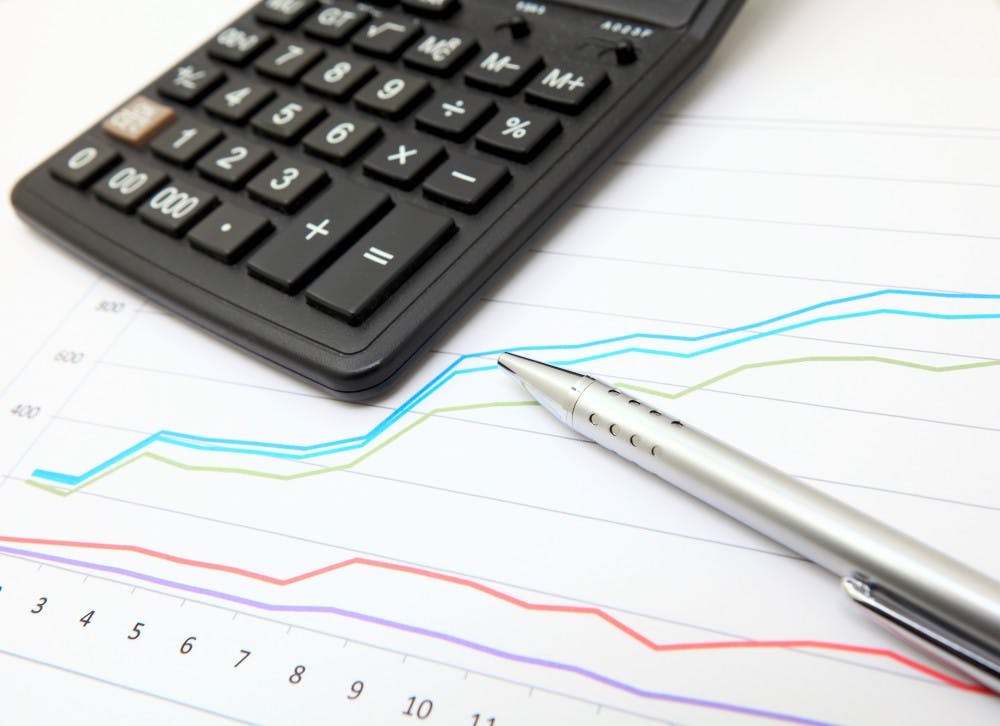By Gabrielle Beacken
News Assistant
Christine Bader, author of “The Evolution of a Corporate Idealist: When Girl Meets Oil,” was convinced “business is where it’s at.” British Petroleum (BP) went “above and beyond progressively and holistically about the environment,” Bader said as a satisfied employee of the company.
After eight years of positive experiences with the oil business, Bader advocated BP’s strong environmental sustainability and social responsibility efforts.
And yet on Saturday, April 20, 2010, when BP’s oil spilled into the Gulf of Mexico, creating what is considered to be the worst oil spill in American history, Bader’s perspective shifted. She began questioning the moral accountabilities big businesses are willing to bear — including those of her once-revered BP.
Bader — a speaker, author and advisor on corporations’ social responsibility — shared with students her positive and negative experiences with big business, as well as the lessons she learned about human-impact responsibility and sustainability on Wednesday, March 11, in the Business Building lounge.
After earning her Master’s degree in business administration (MBA) from Yale University, Bader got a job at BP, working on large-scale projects in Indonesia, China and the United Kingdom.
“I was pleasantly surprised by what I found there (at BP),” Bader said about her first experiences with the company. “Everyone seemed to be in constant conversation about responsibility. I didn’t know people talked about this stuff in companies.”
In the early 2000s, according to Bader, there was no official “corporate responsibility” or “human rights” position — a multinational corporation championing responsibility, then, was striking.
Bader began her human-impact studies career during an important BP project in Indonesia, where she volunteered to head the social responsibility aspect of the project.
In the course of her human rights impact assessment, BP allowed Bader to hire environmental and international standards experts and also offered her a budget for her endeavors.
The company was going “above and beyond” to make sure Bader was “truly consulting and engaging with the community,” according to Bader. In these community consultations, Bader would explain to citizens what their new environment with BP would smell like, sound like and look like.
Since BP was so supportive of Bader’s projects on social responsibility, Bader thought to herself, “I love big oil! This is so cool!”
“It was an amazing experience,” Bader said. “What I didn’t realize at the time was that it was so unusual.”
Leaving BP in 2008, Bader joined the United Nations’ Secretary General as a special representative for business and human rights. There, Bader drafted guidance for human rights for corporations.
Bader’s U.N. mandate lasted through 2011, the year after BP’s oil spill.
“Oh, that’s not my BP. That’s the wrong company,” Bader said when learning the news of the oil disaster and the public outcry that ensued. “Or was that my BP? Did I miss something?”
Bader became “frustrated” with the public conversation about “another example of a greedy evil company doing greedy evil things.” The author began discussing with peers who had similar roles in business at other large corporations. She would also ask them, “Are we really making a difference at all?”
“I wanted to reframe the conversation,” Bader said. “I wanted to tell these people’s stories.”
The long-term goal is to move “big-tanker” companies in the right direction, Bader said. While she recognizes that she is not able to “transform all of BP,” a company that she “didn’t know as well” as she thought she did, Bader does recognize the tens of thousands of households and workers that she did positively affect while at BP.
“It’s not bad — not good enough,” Bader said. “But that’s not bad.”
Bader’s optimism — that corporations can make progressive social change — impressed students.
“It was refreshing hearing from someone with experience in corporations (who) still has faith that big corporations can have a positive social impact,” sophomore finance major Liam Kennedy said.
Kennedy’s fellow finance major, junior Cynthia Timko, agreed.
As a member of the College’s Net Impact club, a club promoting “corporation responsibility and sustainability,” Timko also appreciated Bader’s principles and was inspired that “she genuinely cared about what she was doing.”
Bader’s book is filled with dozens of interviews that beg the question, “Why do we fail?” and “What do we need in order to succeed? From everybody.”
There are four major themes in “The Evolution of a Corporate Idealist: When Girl Meets Oil,” according to Bader.
“No one gets rewarded for what doesn’t happen,” Bader said. The ones who manage disasters get recognized, but the ones who prevent disasters from occurring rarely receive the same recognition, according to Bader.
The second theme is the importance of bearing witness, Bader said. Higher-ups in companies start “losing sight” of the impact their decisions have. Therefore, it is beneficial to have the CEO or CFO in a company experience firsthand what conditions their factories are in or how the employees and environment are being treated, according to Bader.
“We’re training business leaders the wrong skills,” Bader said, explaining the third theme of “The Masters in Social Work is the new MBA.” Skills in communication and social work are important for businesses attempting to have a positive impact on humans and society, Bader said.
Incrementalism, the process of making many small changes instead of a couple of large adjustments, is the fourth theme Bader discussed. This approach is a more reasonable solution, according to Bader, and people like her doing their part in big corporations are making a difference.
Part of why it is so difficult for big corporations to have widespread positive impact is that “the problems are deeply contextual” and “big companies are incredibly complicated,” according to Bader.
“I am no longer that girl who fell in love with big oil 15 years ago,” Bader said. “But I am a corporate idealist.”







